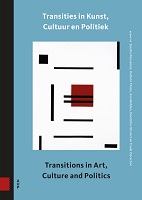Chapter De huid van de feministische dekoloniale wetenschapper
| dc.contributor.author | Buikema, Rosemarie | |
| dc.date.accessioned | 2023-10-12T13:13:48Z | |
| dc.date.available | 2023-10-12T13:13:48Z | |
| dc.date.issued | 2023 | |
| dc.identifier | ONIX_20231012_9789048560110_3 | |
| dc.identifier.uri | https://library.oapen.org/handle/20.500.12657/76677 | |
| dc.language | Dutch | |
| dc.subject.other | poetics of recycling | |
| dc.subject.other | entanglement | |
| dc.subject.other | decolonial dialogue | |
| dc.subject.other | MOED | |
| dc.subject.other | Revolt | |
| dc.title | Chapter De huid van de feministische dekoloniale wetenschapper | |
| dc.type | chapter | |
| oapen.abstract.otherlanguage | In this chapter Rosemarie Buikema elaborates on how decolonial feminist artists and scholars are engaged in knowledge production by means of deploying a poetics of recycling as a way to re-orientate themselves towards the relation between the subject and the object of knowledge, matter and form, signifier and signifed. Buikema analyses the work of El Anatsui and Nandipha Mntambo to illustrate the power of this poetics of recycling and gives the example of an exhibition in which the Museum of Equality and Difference (MOED) re-curated the cultural heritage of abolitionism, giving centre stage to the black, previously enslaved woman Sojourner Truth, rather than the white Dutchman Nicolaas Beets. She concludes that the collective fijield of decolonial feminism envelops engaged scholars and artists like a sensitive skin that continuously responds to the context in which it fnds itself. | |
| oapen.identifier.doi | 10.5117/9789048560110_Buikema | |
| oapen.relation.isPublishedBy | dd3d1a33-0ac2-4cfe-a101-355ae1bd857a | |
| oapen.relation.isPartOfBook | 95ba63c0-4a4a-4684-a56c-73ba347aa51b | |
| oapen.relation.isFundedBy | b586072e-2e5d-469f-8332-217c0beb5b08 | |
| oapen.relation.isFundedBy | 4d864437-7722-4c66-b80f-140a98d4bca9 | |
| oapen.relation.isbn | 9789048560110 | |
| oapen.relation.isbn | 9789048560127 | |
| oapen.pages | 22 | |
| oapen.place.publication | Amsterdam | |
| oapen.grant.number | [...] | |
| oapen.grant.number | [...] |

